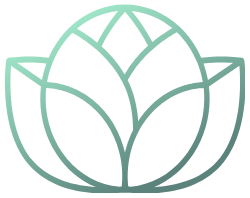We are constantly experiencing the world through our senses, we experience heat, movement, visual stimuli, sensations, audio, we are processing a lot of information from the outside world.
In essence, our focus and attention is always pointed toward the exterior stimuli, towards other people around us and when is not and is pointed toward us, is very basic information we receive about our own self such as hungry- not hungry, angry-not angry, happy- not happy.
But how much do you really know you?
It may even sound like a stupid question, what should i know ? I am me.
I know everything! …Right? ….
Know thyself
There is a reason why “self-awareness” is said to be something of great importance, but for me it really took a long time to click, it was just confusing, i tend to be analytical and thoughtful but heck, what do you mean by that?
To quote the greek philosopher Socrates who placed emphasis in getting to “Know thyself”:
“The unexamined life is not worth living”
This was him referring to the importance on self-reflection and questioning in order to gain more knowledge about yourself.
Marcus Aurelius Roman Emperor and Stoic philosopher , in his personal journal “Meditations”,engaged in deep introspection and self-reflection as a means to navigate the complexities of life and understand his own thoughts, emotions, and actions.
By doing that he could then work towards living in better alignment to the stoic virtues, therefore achieving a more fulfilled life.
While these reflections were written for his own contemplation and self-improvement, they also serve as a timeless example of the value of introspection.
The Mind is an impenetrable fortress
In “Thus Spoke Zarathustra” and other works, Nietzsche does address the challenges of understanding oneself fully. He suggests that the human mind is complex and can be difficult to navigate, requiring introspection and self-reflection to uncover its deeper layers.
There is an inherent difficulty to the task, but that doesnt mean is impossible.
How to start getting to know yourself better?
There is a great book called “No Bad Parts: Healing Trauma and Restoring Wholeness with the Internal Family Systems Model” – by Richard Schwartz, a prominent figure in the field of psychotherapy.
In that book he teaches how to get more self-awareness through a “method” of self talk , where we get to talk to other parts of ourselves, its a great book that provides some introspective techniques that could really help you in this process.
He argues that often “destructive behaviors” could be addictions, procastination, agression, etc. Are normally defensive mechanisms, and normally we try to patch the “destructive behavior” without really understanding what is causing it.
For example lets say someone is overeating and gaining lots of weight, normally it would be adressed by dieting, working out, etc. That would be trying to fix the external behavior.
But by doing a process of self-awareness, that person could discover he is eating to deal with strong feelings of anxiety that came from some childhood trauma. In that way he argues, that “destructive part” of himself, was just trying to protect him, thus the name of the book “No bad parts”.
In essence, there are many subconcious behaviors that we may not be aware of, they literally kick off in automatic, without us being fully conscious about why we are thinking, feeling or acting in some specific way.
By doing some techniques such as self-talk, journaling, meditation, etc. We can gain further understanding of our own motivations, desires, frustrations, and then adjust our thoughts/actions, towards the place we really want to go.
Going fast to nowhere
Normally we are not consciously asking ourselves the important questions-
What do i want to dedicate my life to?, Where do i really want to live? , Why am i feeling discontent – anxious?
In our haste, we gravitate towards quick fixes, believing they hold the keys to our well-being:
We feel a pang of dissatisfaction, so we intensify our exercise regimen, longing for a physique that garners admiration and validation from others.
We sense a lack of productivity, prompting us to immerse ourselves in work, chasing after promotions and monetary gains in the pursuit of success and happiness.
We experience inner turmoil, seeking solace in yoga retreats and hours of meditation, only to find the lingering discomfort persisting.
It is imperative that we turn our gaze inward, attuning ourselves to the whispers of our soul.
Consider this scenario: “Envision a soul yearning to express itself through the vibrant strokes of a paintbrush, yet finds itself confined within the mundane constraints of an accounting career”
Could it be that this inner misalignment is the root cause of our turmoil and unrest?
No amount of physical exertion, professional accolades, or spiritual retreats can fill the chasm within if it is misaligned with our true essence.
The way out is in
In numerous ancient Indian traditions, a profound insight has been imparted: humanity’s deepest longing is for growth and expansion.
Yet, it’s paradoxical that our pursuit often leads us outward, fixating on external achievements like wealth, fame, power, and material possessions, among others.
However, this relentless quest reveals itself to be a labyrinthine journey, never fully quenching our inner thirst for fulfillment.
Despite our tireless efforts, the satisfaction remains elusive, leaving us yearning for something more substantial.
In these teachings, a transformative revelation emerges:
The ultimate expansion lies not in the external realm but within the divine essence dwelling within each being. Herein lies the gateway to boundless growth an inward voyage to reconnect with the sacred depths of our being.
Much love,
Zifush.

